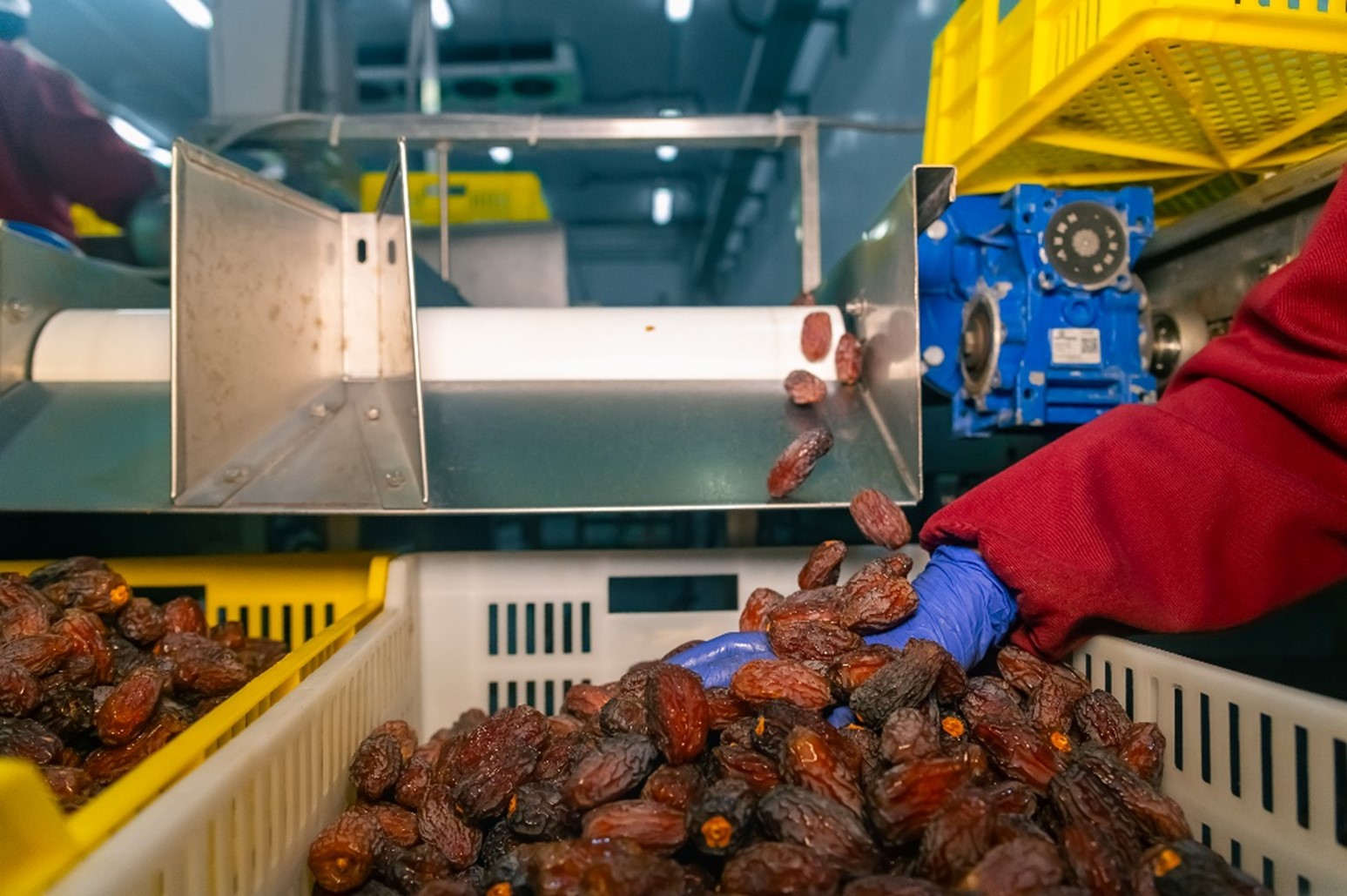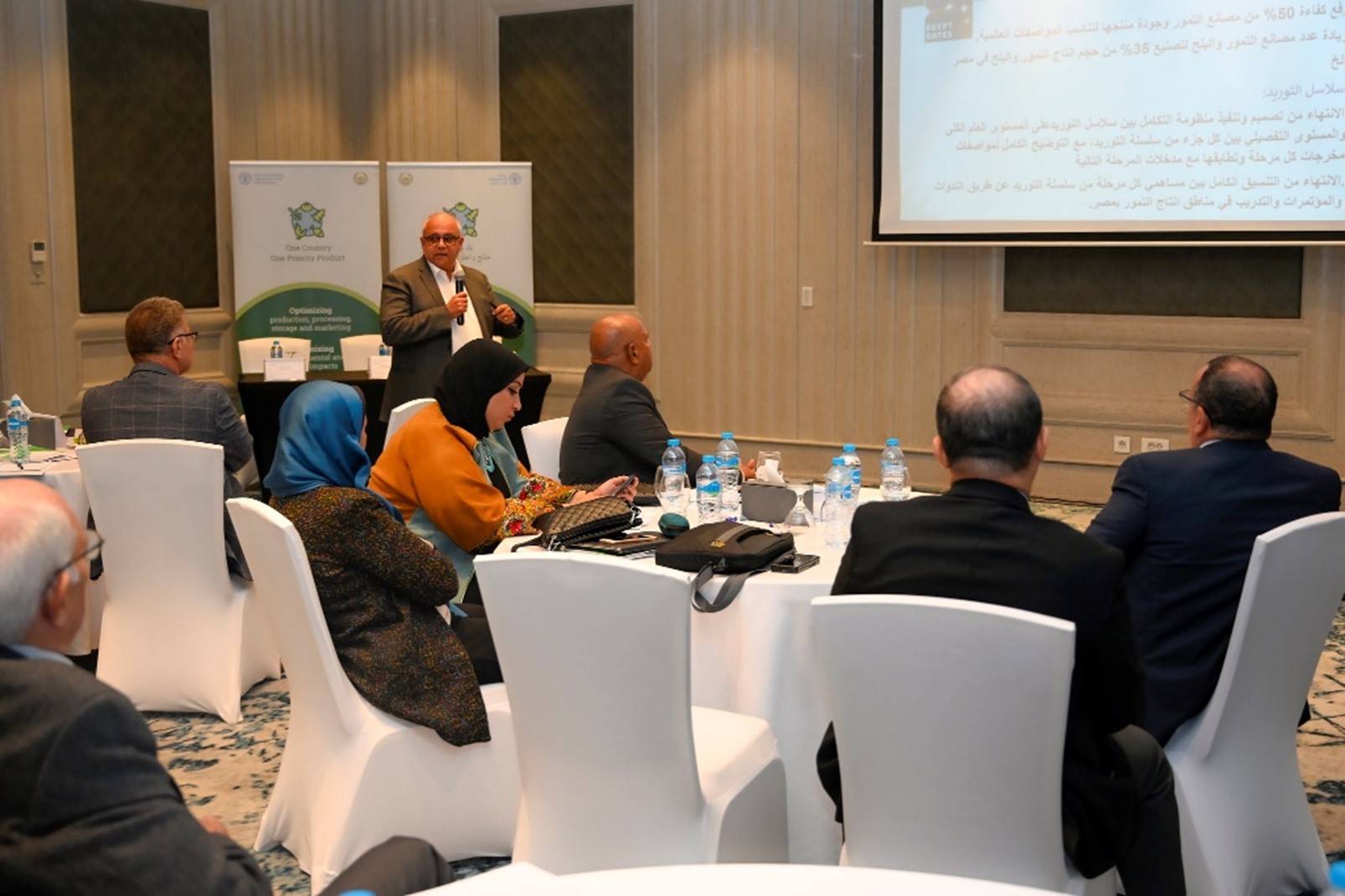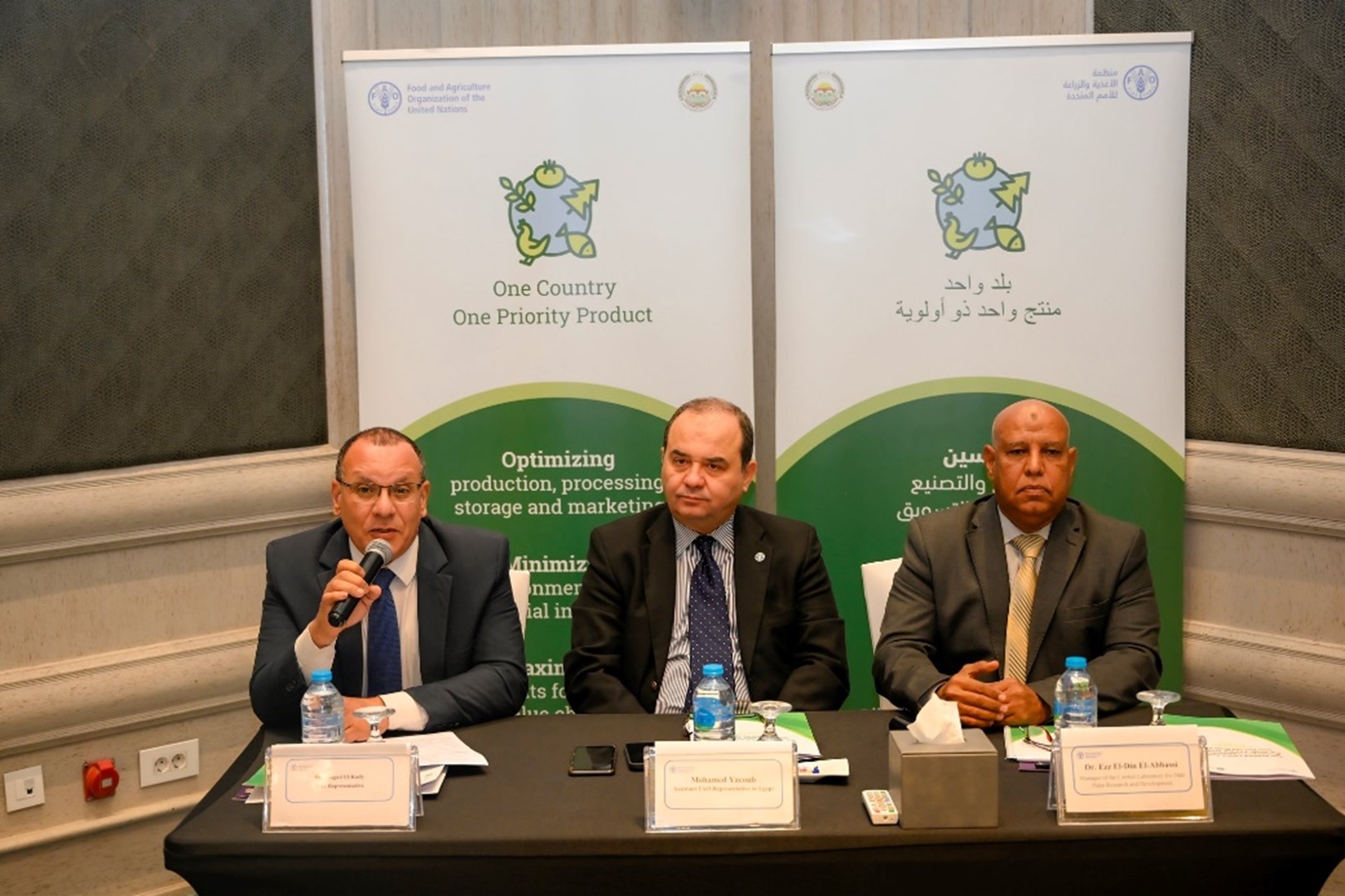News
Egypt charts strategies for a sustainable date palm sector under the OCOP initiative
A new strategy 2024-2029 was developed for the date palm sector in Egypt

Participants at the OCOP Annual Meeting 2023.
©FAO/Hamada Ismail
20 December 2023, Cairo – Representatives from the government, academia, development organizations, researchers, traders, and exporters gathered in Cairo on 20 December to discuss the progress and priorities for the date palm sector in Egypt. The national annual meeting for the implementation of the One Country One Priority Product (OCOP) initiative in Egypt, was organized by the Food and Agriculture Organization of the United Nations (FAO), the Ministry of Commerce and Industry (MoCI), and the Ministry of Agriculture and Land Reclamation (MoALR).
The meeting served as a platform to evaluate the progress made in Egypt's date palm sector, delving into challenges, opportunities, and the formulation of an action plan for 2024-25 under the OCOP initiative. Participants shared innovative approaches for plant production and success stories from farmers benefiting from the OCOP project, which sparked interest and potential for further developing the date palm sector.
Under the OCOP global project "Innovative Approaches for Better Plant Production” funded through the FAO Flexible Voluntary Contribution (FVC), a team of national value chain experts conducted an extensive value chain analysis of the date palm. Through consultations with governmental officials, farmers, brokers, and exporters in the date palm growing districts, the team identified challenges and opportunities in the sector, encompassing economic, social, and environmental impacts.
Additionally, the date palm experts from the Central Laboratory for Date Palm Research and Development (CLDPRD) conducted a series of trainings to develop the capabilities and skills of smallholder farmers in the green and climate-smart production, harvest, and postharvest practices of dates. Three manuals were developed on green/CSA production, Integrated Pest Management (IPM), harvesting and post-harvest practices, and technologies of dates.

Packaging dates is one of the most important stages of the date palm value chain in Egypt. ©FAO/Ahmed Elsheemi
Developing a new strategy for 2024-2029
The OCOP National Task Force in Egypt also presented the updated strategy for the date palm sector in Egypt for the period 2024-2029 and consulted the stakeholders. This strategic roadmap aims to usher in a comprehensive renaissance of the sector, focusing on rapid and sustainable development across various facets, including production, assembly, packing, manufacturing, and export of dates. Furthermore, the strategy emphasizes the utilization of date palm waste to benefit the state's general budget, investors, manufacturers, and traders, with a particular emphasis on supporting small farmers and marginalized groups, thereby improving the environment and climate by transitioning to more sustainable production methods and practices.

Stakeholders are reviewing strategy for the date palm sector at the OCOP Annual Meeting 2023. ©FAO/Hamada Ismail
The reviewed action plan includes the establishment of the Egyptian Dates Network, encompassing date production services, palm protection, harvest and post-harvest practices, climate-smart production, and the development and dissemination of elements supporting sustainable development in the date processing and manufacturing sector.
Renewed hope for the date palm sector
Egypt has the pride and distinction of being the world's top producer of dates, contributing approximately 1.8 million tonnes annually, which accounts for 19% of the global production and 24% of the Middle Eastern production. With over 16 million palm trees and ongoing projects reflecting the government's commitment to this sector, Egypt has seen a remarkable expansion in cultivating high-value varieties. In the period 2017-2025, 5 million palm trees of various varieties are projected to be planted, catering to both the local and export markets. Currently, 142 factories and packing stations operate in the field of date manufacturing and packing, contributing to the sector's growth and economic impact.
Mr. Ezz El-Din Jadallah Hussein, Director of the Central Palm Research Laboratory at MoALR, highlighted the significance of the OCOP initiative, underscoring the huge potential of the date palm sector. “Egypt has chosen the date palm as a national fruit for promoting sustainable value chains. This choice is based on the fact that today Egypt ranks 1st in the world in date production, with opportunities to increase export rates of dates produced in Egypt to $250 million annually and to increase local consumption to one million tonnes annually, at a rate of increase of 10% annually, which means there is a great potential for further promotion of this product,” he said.
Mr. Mohamed Yacoub, Assistant FAO Representative in Egypt, highlighted the government’s sincere commitment to the successful implementation of the initiative in the country, urging collective efforts for the sector.

From left to right: Amged Al Qady, the OCOP Project Coordinator in Egypt, Mohamed Yacoub, Assistant FAO Representative in Egypt, Ezz El-Din Jadallah Hussein, Director of the Central Palm Research Laboratory, MoALR in Egypt ©FAO/ Hamada Ismail
Egypt's active participation in OCOP reflects its commitment to promoting the date palm as a special agricultural product. As the OCOP demonstration country for the Near East and North Africa region, Egypt is poised to serve as a model for other nations seeking to advance the date palm value chain and foster its sustainable agricultural development.
- One Country One Priority Product webpage
- FAO Egypt
- FAO Director-General showcases OCOP Initiative as powerful catalyst for change
- FAO launches OCOP global project under FAO-China South-South Cooperation
- Egypt Establishes National Task Force to Oversee the Implementation of the One Country One Priority Product Initiative
- Workshop Sets Out Project for Sustainable Development of Palm Dates in Egypt
- Regional Knowledge Platform on OCOP in Near East and North Africa
